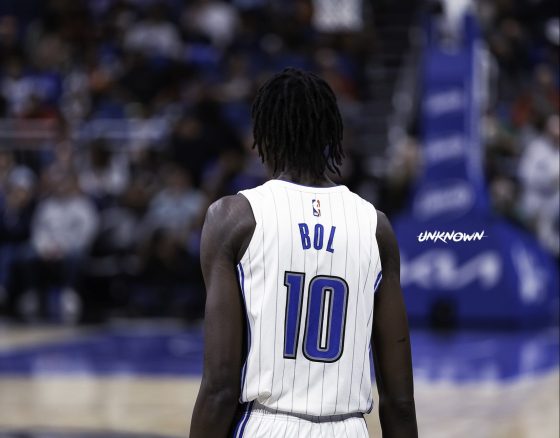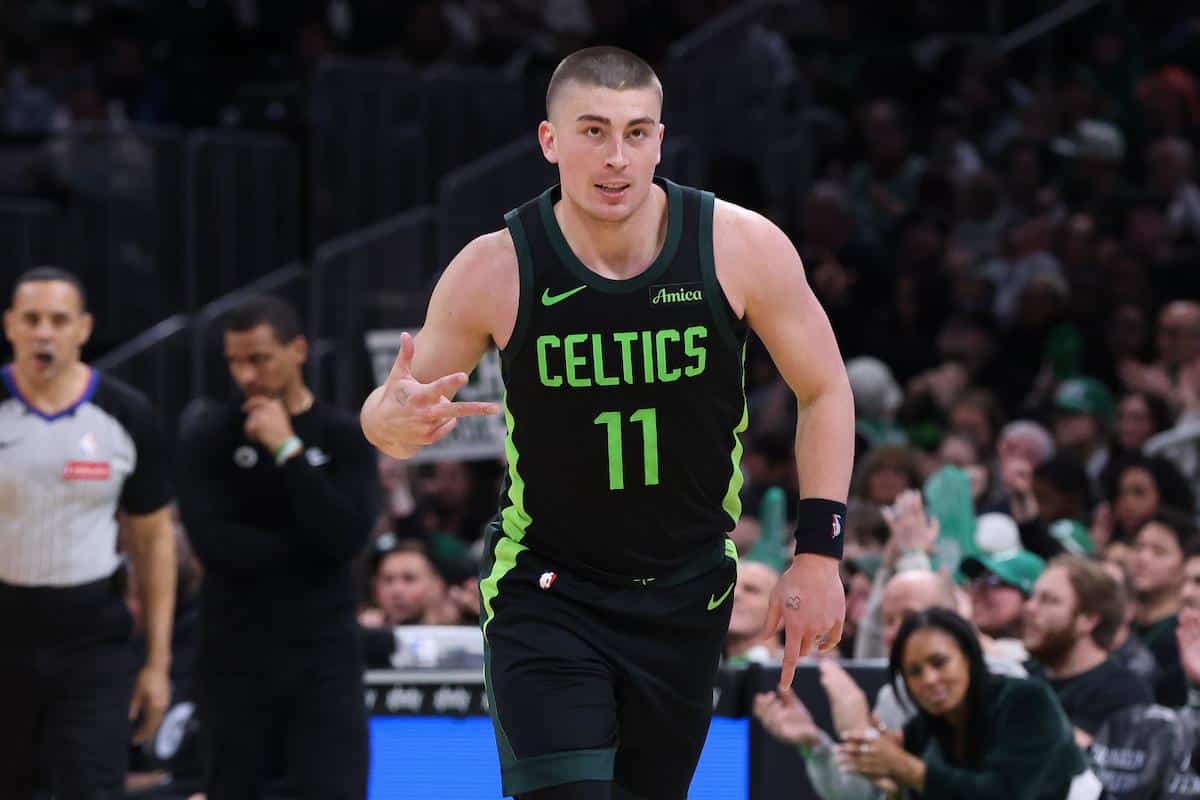The Boston Celtics were well-represented in NBA awards season. Malcolm Brogdon won Sixth Man of the Year. And on Wednesday, Jayson Tatum and Jaylen Brown were named All-NBA.
Tatum was named to the All-NBA First Team. Brown was named to the All-NBA Second Team. For both players, the honor is noteworthy as recognition of their accomplishments from this past regular season. There are also some significant contractual implications for both Tatum and Brown.
Dale Zanine-USA TODAY Sports
We’ll start with Jaylen Brown, as his situation is more immediate. Brown is under contract through next season, at $31.8 million, after maxing out his bonuses. (Brown will need to re-earn those bonuses next season, but they are all now considered likely and part of his cap hit for next year.) However, the real boon for Brown is that he’s now eligible for a Designated Veteran Extension by virtue of making All-NBA.
A Designated Veteran Extension, or so called “Super Max” allows Brown to skip the 30% of the cap max salary tier and to jump to the 35% of the cap max salary tier.
That makes him eligible for a five-year extension from 2024-25 through 2028-29. That deal projects to look like this:
· 2024-25: $50,050,000
· 2025-26: $54,054,000
· 2026-27: $58,058,000
· 2027-28: $62,062,000
· 2028-29: $66,066,000
· Total: five years, $290,290,000
That’s a full five-year maximum deal at 35% of the cap with 8% raises.
It’s very likely that fifth year would be a player option, as most Designated Player deals generally come with a player option on the final season.
The Celtics can offer this extension to Brown as soon as midnight on July 1. The expectation is that Brown will receive this offer from Boston. Should he choose not to sign it, that should set off the alarm bells in the Celtics front office.
No player has really turned down a Designated Player extension to this point, outside of Kawhi Leonard. And Leonard’s situation was more about being traded and being ineligible to sign a Super Max vs actually turning the deal down.
The most likely situation is that Brown will get, and sign, the Designated Veteran Extension. Then, because it’s how things work in the NBA, if he’s unhappy a year or two into the deal, he’ll ask for a trade. Or, if the Celtics feel a change needs to be made, they’ll move in a different direction a year or two into the extension themselves.
One last important thing to note: If Brown signs a Designated Veteran Extension, he would be ineligible to be traded for one year from the date of signing the extension. That means he would be locked into staying with the Celtics for the entirety of the 2023-24 season.
:no_upscale()/cdn.vox-cdn.com/uploads/chorus_asset/file/24649081/usa_today_20611781.jpg)
Eric Hartline-USA TODAY Sports
Jayson Tatum’s situation is a bit further down the line. As he’s just completing Year 2 of his current five-year extension, Tatum isn’t eligible to sign a new extension until the summer of 2024. At that point, Tatum would decline his player option for the 2025-26 season. He could then add five new seasons onto his deal, running from 2025-26 through 2029-30.
That deal currently projects to look like this:
· 2025-26: $53,198,250
· 2026-27: $57,454,110
· 2027-28: $61,709,970
· 2028-29: $65,965,830
· 2029-30: $70,221,690
· Total: five years, $308,549,850
Like Brown, that’s a full five-year maximum deal at 35% of the cap with 8% raises.
Much like we said with Jaylen Brown, the final season for Tatum will likely be a player option. As Tatum would be just entering his age-32 season, he could feel comfortable cashing in one more max deal, whatever that may look like in 2029.
As Tatum was an MVP candidate this season and now an established All-NBA player, the Celtics will likely have no qualms about handing him a Designated Veteran Extension offer at midnight on July 1, 2024. They’ll just have to patiently wait for about 14 months to do so.
It’s important to note with Tatum’s extension that the NBA will be negotiating new media rights deals that will start with the 2025-26 season. That could make the projected $53.2 million first-year salary in an extension a touch conservative. It’s possible that first-year salary could be approaching $55 million.
One last note for Tatum: As he’s already made All-NBA for two consecutive seasons (2021-22 and 2022-23), he’s already eligible to sign a Designated Veteran Extension in the summer of 2024. That’s true no matter what happens during the 2023-24 season. To be eligible through the All-NBA criteria, a player only needs to make All-NBA for two of the previous three seasons, which Tatum has now done.
(Note: All projections are highly subject to change before extensions would actually start. With a new CBA and a new set of media rights deals soon to come, the salary cap is a bit more volatile than usual.)






